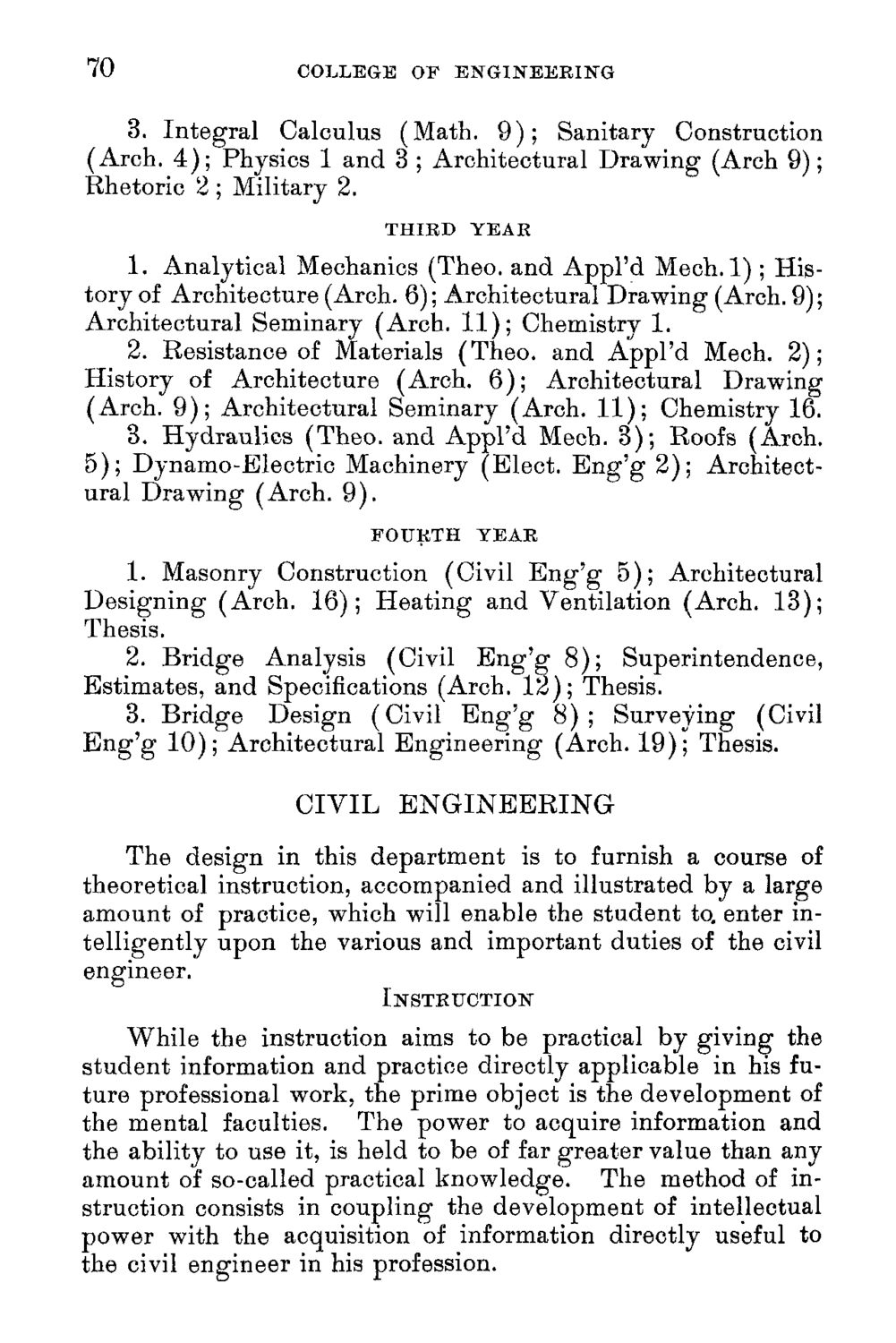Caption: Course Catalog - 1895-1896
This is a reduced-resolution page image for fast online browsing.

EXTRACTED TEXT FROM PAGE:
70 COLLEGE OF ENGINEERING 3. Integral Calculus (Math. 9 ) ; Sanitary Construction (Arch. 4 ) ; Physics 1 and 3 ; Architectural Drawing (Arch 9); Rhetoric 2 ; Military 2. THIBD YEAR 1. Analytical Mechanics (Theo. and Appl'd Mech. 1); History of Architecture (Arch. 6); Architectural Drawing (Arch. 9); Architectural Seminary (Arch. 11); Chemistry 1. 2. Resistance of Materials (Theo. and Appl'd Mech. 2); History of Architecture (Arch. 6); Architectural Drawing (Arch. 9); Architectural Seminary (Arch. 11); Chemistry 16. 3. Hydraulics (Theo. and Appl'd Mech. 3); Roofs (Arch. 5); Dynamo-Electric Machinery (Elect. Eng'g 2); Architectural Drawing (Arch. 9). FOURTH YEAR 1. Masonry Construction (Civil Eng'g 5); Architectural Designing (Arch. 16); Heating and Ventilation (Arch. 13); Thesis. 2. Bridge Analysis (Civil Eng'g 8); Superintendence, Estimates, and Specifications (Arch. 12); Thesis. 3. Bridge Design (Civil Eng'g 8 ) ; Surveying (Civil Eng'g 10); Architectural Engineering (Arch. 19); Thesis. CIVIL ENGINEERING The design in this department is to furnish a course of theoretical instruction, accompanied and illustrated by a large amount of practice, which will enable the student to. enter intelligently upon the various and important duties of the civil engineer. INSTRUCTION While the instruction aims to be practical by giving the student information and practice directly applicable in his future professional work, the prime object is the development of the mental faculties. The power to acquire information and the ability to use it, is held to be of far greater value than any amount of so-called practical knowledge. The method of instruction consists in coupling the development of intellectual power with the acquisition of information directly useful to the civil engineer in his profession.
|